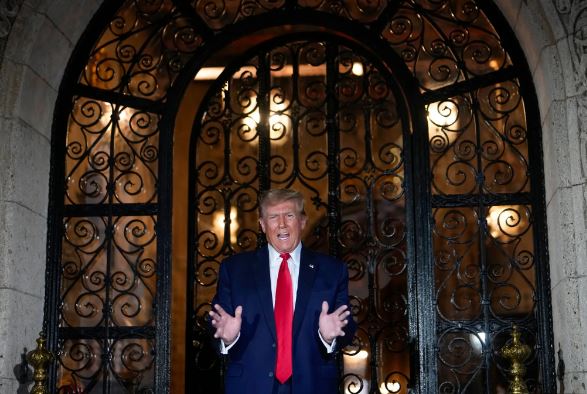Former President Donald J. Trump’s legal team launched a vigorous defense on Thursday night against federal charges alleging illegal retention of classified documents after leaving office. Filing over 70 pages of court documents, they sought to dismiss the case on multiple grounds, employing various legal arguments in an attempt to derail what many legal experts consider a robust case against him.
In a series of motions to dismiss, Trump’s lawyers attacked the law he is accused of violating, questioned the legitimacy of the special counsel prosecuting him, and invoked presidential immunity as a shield against prosecution. However, many of these arguments appeared to test the boundaries of plausibility and contradicted prior court rulings. Moreover, the motions seemed designed to prolong the legal proceedings, a strategy consistent with Trump’s approach in all ongoing criminal cases against him.
One of the most audacious claims made by Trump’s legal team was asserting his immunity from prosecution on the grounds of presidential actions. This argument had been decisively rejected by a federal appeals court in a separate case where Trump sought immunity. Despite this, his lawyers argued that he should not be prosecuted for moving classified documents from the White House to his private club in Florida, Mar-a-Lago, as the decision was made while he was in office. However, prosecutors contend that Trump continued to willfully retain the documents even after leaving office.
Additionally, Trump’s lawyers sought to challenge different sections of the Espionage Act, claiming certain phrases were unconstitutionally vague when applied to him. They argued that presidents were inherently authorized to possess national security files and criticized the broad and ambiguous definition of “national defense” records.
Another line of attack targeted the legitimacy of the special counsel overseeing Trump’s cases, asserting that his appointment was unlawful under the Constitution. They argued that the special counsel should have received Senate confirmation for his appointment, questioning his authority to prosecute the case against Trump.
Furthermore, Trump’s legal team reiterated their argument that he had the discretion to designate the records in question as personal under the Presidential Records Act, thereby exempting them from prosecution. However, legal experts have raised doubts about this interpretation, noting that the law was intended to ensure government control over presidential records.
In response to the flurry of motions, Judge Aileen M. Cannon granted a brief delay to allow partial sealing of some documents. Trump’s lawyers plan to file additional motions, including ones seeking to suppress evidence seized during the FBI’s search of Mar-a-Lago and accusing members of the special counsel’s team of misconduct.
They also intend to challenge a judge’s ruling permitting prosecutors to pierce attorney-client privilege and seek documents from one of Trump’s lawyers. Additionally, they will allege selective and vindictive prosecution by the special counsel, pointing to a recent decision not to indict President Biden for similar actions.
Finally, Trump’s legal team requested hearings on five of the filed motions, potentially further delaying the proceedings. With a hearing scheduled to reconsider the trial date, currently set for May 20, the legal battle surrounding Trump’s alleged retention of classified documents is poised to continue with intensity.

